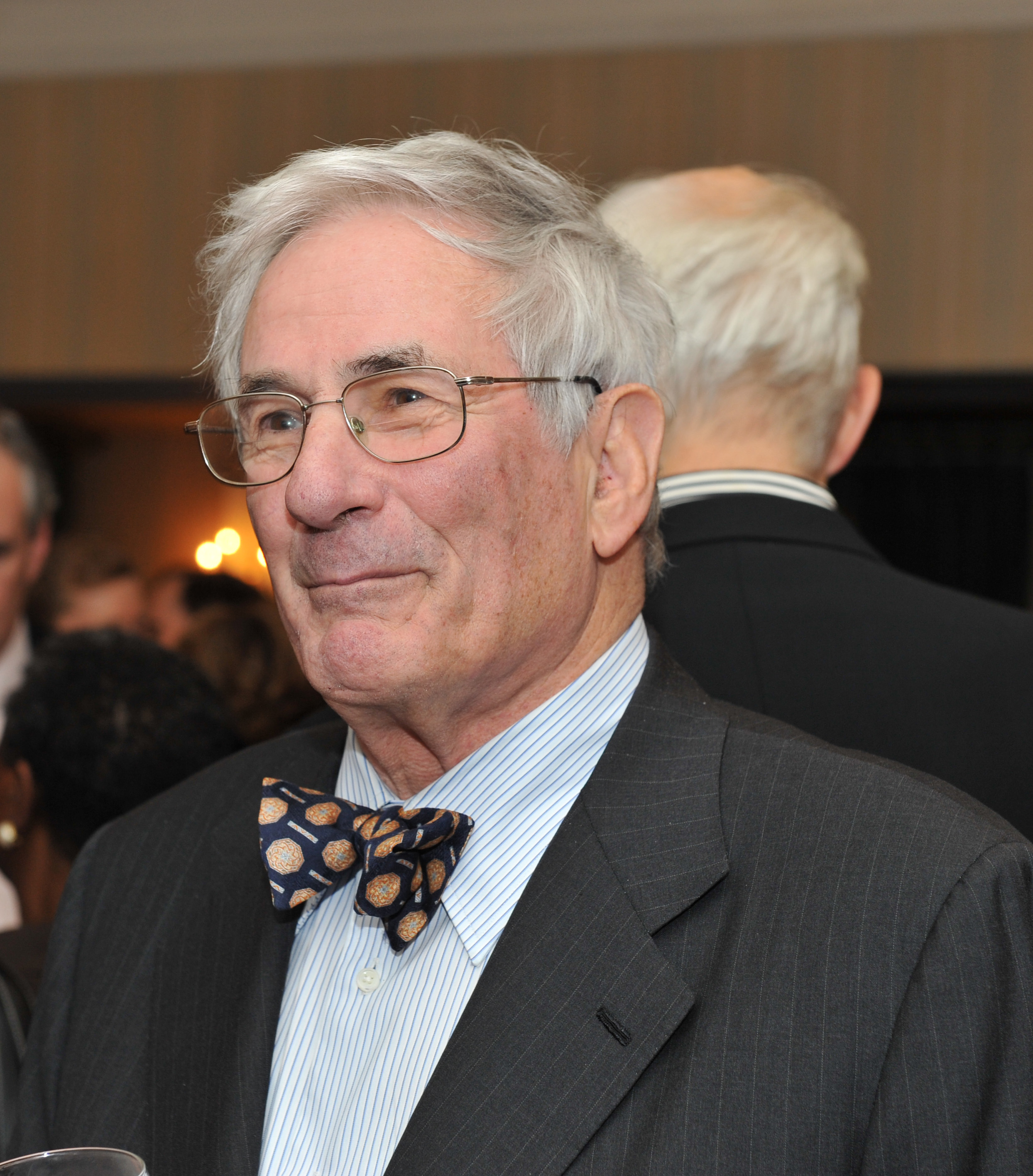
Photo courtesy Gilder Lehrman Institute of American History
Richard Gilder, an investor and philanthropist who promoted historical study to people of all ages, died on May 12, 2020, in Charlottesville, Virginia. The 2012 winner of the AHA’s Theodore Roosevelt–Woodrow Wilson Award for Public Service, Gilder was co-founder of both the Gilder Lehrman Institute for American History and the Gilder Lehrman Center for the Study of Slavery, Resistance, and Abolition at the MacMillan Center at Yale University.
Born in Manhattan, Gilder was a fifth-generation New Yorker, son of a real estate property manager and a homemaker. He earned a BA in history from Yale and briefly attended Yale Law School. In 1968, he started the investment firm Gilder, Gagnon, Howe & Company, which would become a multi-billion-dollar company. As a philanthropist, his largesse extended from the rehabilitation of a dilapidated Central Park to the funding of a graduate school at the American Museum of Natural History, the first museum in the Western Hemisphere to begin a doctoral-granting degree program.
In the late 1980s, Gilder began parlaying a lifelong passion for American history into a suite of activities that, taken together, would widely influence American historical consciousness. He started by saving Civil War battlefields, which he likened to three-dimensional documents, until learning the joy in collecting actual historical manuscripts from his friend Lewis E. Lehrman. The men joined forces to create the Gilder Lehrman Collection of American documents, the foundation of the Gilder Lehrman Institute. The institute has cataloged and digitized the collection (now 72,000 items) for online access.
The institute has elevated the teaching and learning of American history on a national scale. In 1995, after attending a captivating lecture on transatlantic slavery by Yale professor David Brion Davis, Gilder and Lehrman speculated that social studies teachers might be similarly inspired by studying with eminent historians. The resulting “summer seminars,” a competitive program for K–12 teachers, began a few months later, with Davis leading a weeklong course for two dozen New York City schoolteachers. Over 25 years, the program has expanded to more than 1,000 teachers studying each summer at universities across the country, and has served approximately 20,000 teachers since its inception. More broadly, the institute has created a network of 26,000 affiliate schools and programs across all 50 states, supporting more than 50,000 teachers and more than three million students each year. In addition, the institute’s National History Teacher of the Year prize honors exceptional K–12 history teaching annually.
In 1998, Gilder and Lehrman supported Davis in the creation of the Center for the Study of Slavery, Resistance, and Abolition, the first such institution in the world. Of Gilder, its director David Blight wrote: “He put his confidence and his resources behind the effort to create knowledge about human exploitation and to spread that knowledge around the world. He trusted historians, expertise, research, and the great arts of teaching. He set in motion an institutional means by which to cross all manner of political, economic, racial, and ethnic boundaries in grasping the meaning of the past.”
More recently, the establishment of the Pace–Gilder Lehrman MA in American History program, a fully accredited, online degree program, enables students, primarily teachers, to receive a master’s degree in US history awarded by Pace University.
Outside the academy, Gilder’s work as executive committee chair of the New-York Historical Society in the early 2000s led to a transformation that ranged from the renovation of the museum’s headquarters to clarifying its mission to the roll-out of “blockbuster” history exhibitions, including Hamilton: The Man Who Made Modern America and the highly acclaimed Slavery in New York.
Although Gilder’s conservative political leanings provoked skepticism in some circles about the larger implications of his interest in the teaching and dissemination of history, by all accounts his support for scholarship was, in the words of Henry Louis Gates Jr., “nonideological, nonpartisan, cosmopolitan, and fearless.”
Gilder is survived by his wife, the actress Lois Chiles; four children from a previous marriage, Ginny, Peggy, Britt-Louise, and Richard Gilder III; a sister, Peggy Tirschwell; and 10 grandchildren.
Valerie Paley
New-York Historical Society
Tags: In Memoriam North America

This work is licensed under a Creative Commons Attribution-NonCommercial-NoDerivatives 4.0 International License. Attribution must provide author name, article title, Perspectives on History, date of publication, and a link to this page. This license applies only to the article, not to text or images used here by permission.
The American Historical Association welcomes comments in the discussion area below, at AHA Communities, and in letters to the editor. Please read our commenting and letters policy before submitting.
Comment
Please read our commenting and letters policy before submitting.






